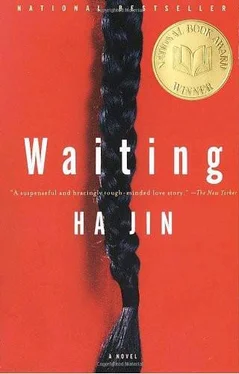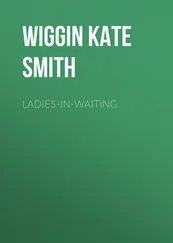"Congratulations," Haiyan said the moment he stepped in. "You have two sons."
"You mean twins?"
"Yes."
The nurses showed him the crying babies, who looked almost identical, each weighing just over five pounds. They were bony, with big heads, thick joints, flat noses, red shrunken skin, and closed eyes. Their faces were puckered like old men's. One of them opened his mouth as though wanting to eat something to assert his existence. The other one had an ear whose auricle was folded inward. They were so different from what Lin had expected that he was overwhelmed with disgust.
"Look," Haiyan said to Lin. "They take after you."
"Like two exact copies of you," Snow Goose chimed in, gently patting the back of the baby she was holding in her arms.
He turned and looked at his wife. She smiled at him faintly with tear-stained eyes and mumbled, "Sorry, I was so scared. I thought I couldn't make it. My heart almost burst."
"You did well." He put the back of his hand on her cheek. Meanwhile, Haiyan began giving Manna stitches to sew up the torn cervix and the incision of the episiotomy. The sight of the bloody cut made Lin's skin crawl, and he turned his head, nauseated.
An hour later two male nurses came. They placed Manna on a stretcher, covered her with blankets, and carried her home. Lin fol lowed them, holding the babies in his arms and shivering with cold. The moon was glistening on the willow and maple crowns; beetles and grasshoppers were chirring madly. The leaves and branches, heavy with dew, bent down slightly, while the grass on both sides of the road looked spiky and thick in the coppery light of the street lamps. A toad was croaking like a broken horn from a distant ditch partly filled with foamy water. Lin felt weak and aged; he was unsure whether he cared for the twins and whether he would be able to love them devotedly. Watching their covered faces, somehow he began to imagine trading places with them, having his life start afresh. If only he himself had been carried by someone like this now; then he would have led his life differently. Perhaps he would never have had a family.
Manna was given fifty-six days of maternity leave. During the first week she could hardly move about, so Lin did all the housework and cooked for her. She didn't have enough milk for the twins, though Lin made her eat a large bowl of pigs' feet soup a day to increase lactation. The babies had to be fed every three or four hours; because it took at least a month to secure the daily delivery of fresh milk, for the time being Lin had to get powdered milk for them, which was in short supply. Luckily Haiyan helped him buy eight pounds of milk powder in town, though at a higher price.
In the second week after Manna's delivery, Lin hired a maid from a suburban village, a short, freckle-faced girl with a pair of long braids. Her name was Juli. On weekdays she cooked and helped Manna look after the babies, but she returned home at night and couldn't come on Sundays.
Manna meanwhile was getting weaker and weaker. Sometimes she had heartburn and breathed with difficulty as though suffering from asthma. A murmur was detected in her heart. The cardiogram indicated she had a heart condition, which shocked Lin. He withheld the information from her for a week, then decided to let her know. When he told her the truth, she shed a few tears, not for herself but for their babies.
"It doesn't matter for me," she said. "The earlier I die, the sooner I can free myself from this world."
"What nonsense," he said. "I want you to live!"
She lifted her face, and the desperate look in her eyes disconcerted him. "Lin, I want you to promise me something."
"What? "
"Promise me that you'll love and take care of our babies when I'm gone."
"Don't think of that. You'll — "
"Promise me, please!"
"All right, I promise."
"You'll never abandon them."
"I won't, of course."
"Thank you. You've made me feel better." Unconsciously her right palm was rubbing her sore nipple.
Her words upset him, but he had no idea how to distract her from thinking of death. All he could do was insist she must not exert herself in any way or worry about anything. Let him do the housework and receive any visitor she was reluctant to meet.
After an extended argument between the parents, the twins were finally named River and Lake. Their father didn't like the names very much because they sounded too common, but their mother believed the commonness was a major advantage, arguing that with plain names the boys would be easier to raise. Besides, both the characters "river" and "lake" contain the element of water, which represents natural vitality and is pliable, enduring, and invincible.
Many officers' wives came to see the twins, who looked identical to them. The visitors kept asking Lin and Manna, "Which one is River?" or "Is this Lake?" Indeed it was difficult to tell who was who. Even the maid sometimes had to remember that River had a slightly folded ear.
The visitors brought along eggs, brown sugar, dried dates, and millet, saying these things could enrich Manna's blood. Several women told her that she should eat a lot of eggs, at least six hundred in two months, to strengthen her bones. By tradition it was believed that if the mother was well cared for and well nourished in the weeks after childbirth, most of her illnesses would naturally disappear. So some women advised Manna to take care not to catch cold when she went out and not to be too stingy to spend money on nutritious food. Their words saddened Manna, reminding her of her heart condition, of which few people knew.
The visitors all congratulated the couple on having two sons. "You landed two birds with a single bullet," one would say. And another, "What a lucky man!" In everybody's eyes Lin was extraordinarily fortunate, because since the 1970s a rule had allowed no couple to have more than one child. But Lin now had two sons and also a grown daughter. His old roommate Jin Tian was upset when he heard Lin had two boys, because his wife had borne him only a girl. He suggested that Lin do something to celebrate this great fortune, either throw a party or distribute some candies and cigarettes. But Lin was too exhausted to think about that.
Though she managed to eat six or seven eggs a day, Manna's health kept deteriorating. It was beyond her ability to breast-feed and look after the twins. Juli, the maid, could help only a little, because the babies slept a lot in the daytime and would remain awake at night, playing and crying. To stop them from disturbing the neighbors in the same dormitory house, Lin had to hold them by turns. In the beginning, his holding could calm the babies, but soon they wanted more motion and wouldn't allow their father to sit down, so Lin had to pace back and forth to stop them from crying. In addition, he had to hum tunes incessantly. Though exhausted and heavy-eyed, he dared not discontinue. At times he was so miserable that he felt like crying together with his sons, but he controlled himself.
Soon neither of the twins wanted to be left in bed for a minute; the moment Lin put down the calmed one to pick up the screaming one, the babies would join forces crying loudly. So Manna began to take part in pacing the floor. As a result, neither of the parents could get enough sleep. This was too much, but they had no choice. A few weeks later Juli suggested that they get a swaying crib, the rocking of which might keep the babies quiet. Lin bought a large crib immediately and tied its ends to ropes secured to the window frame and the door lintel. The crib worked miraculously; the parents didn't have to pace the room at night anymore. Instead, Lin would sit on the bed and go on rocking the crib, while the babies made noises continually as though talking to their father.
Читать дальше











